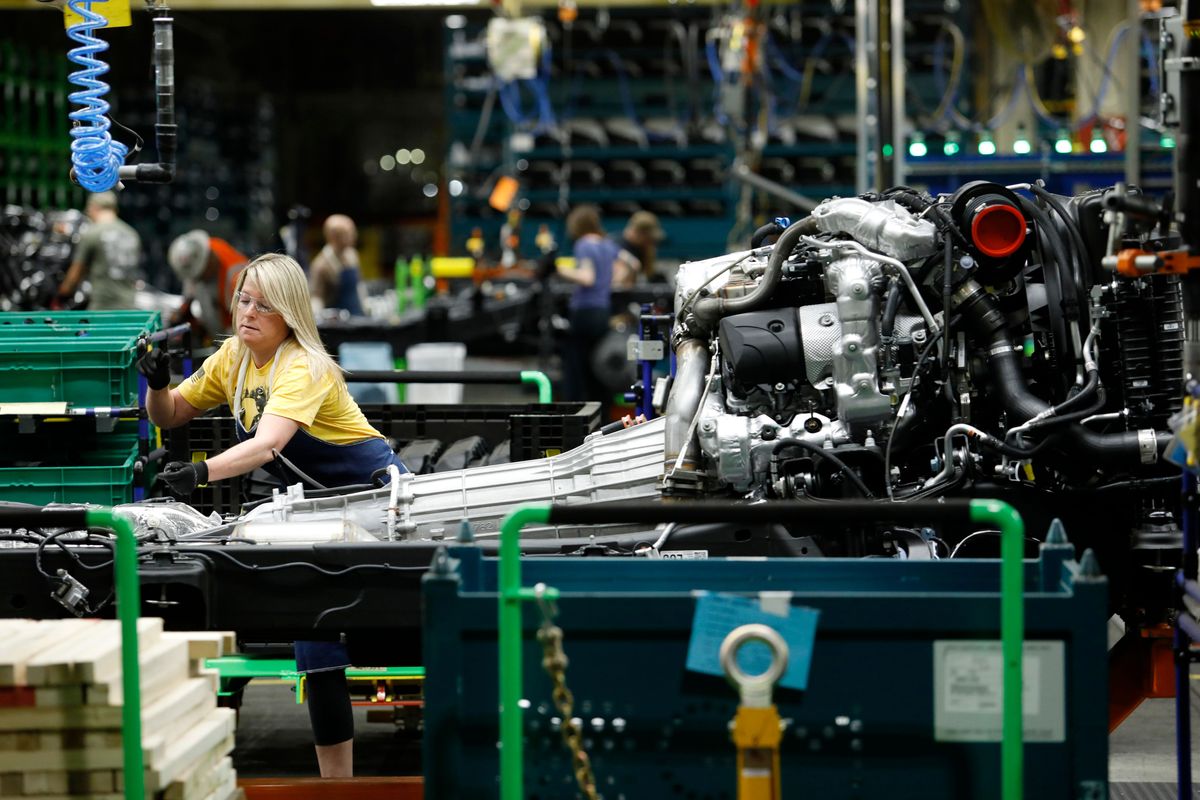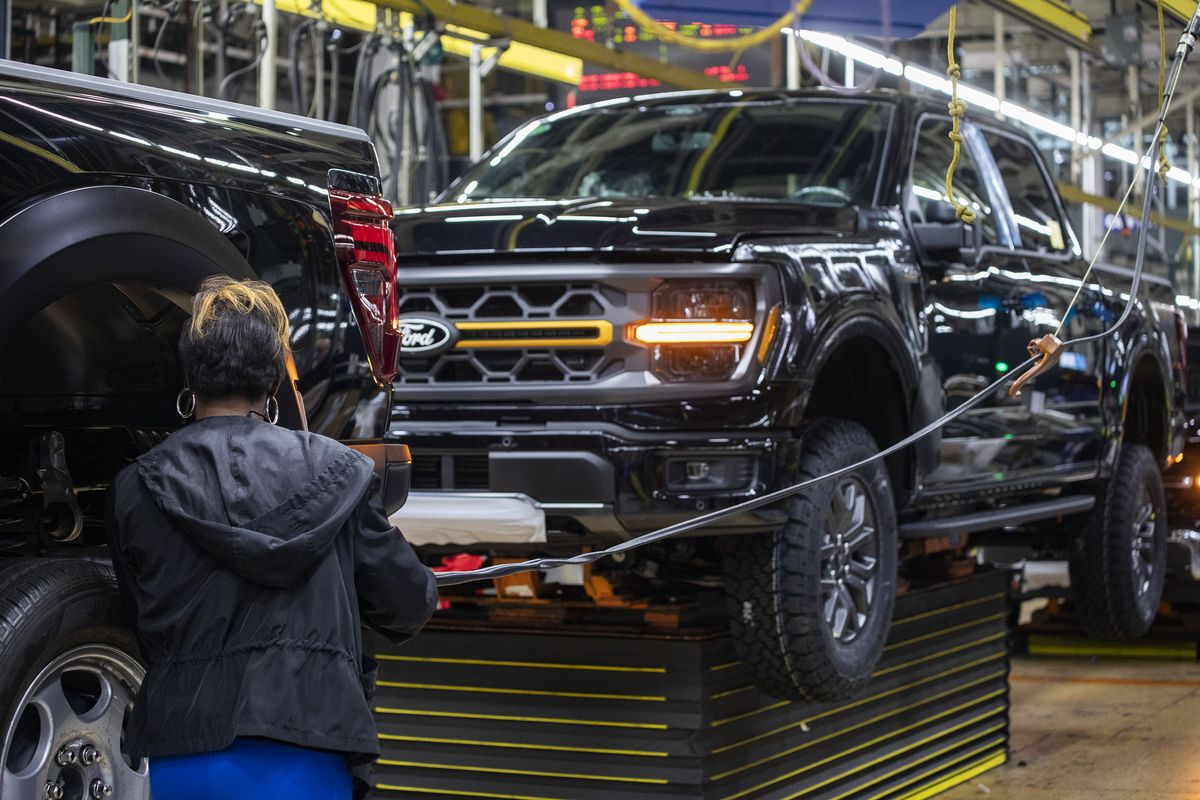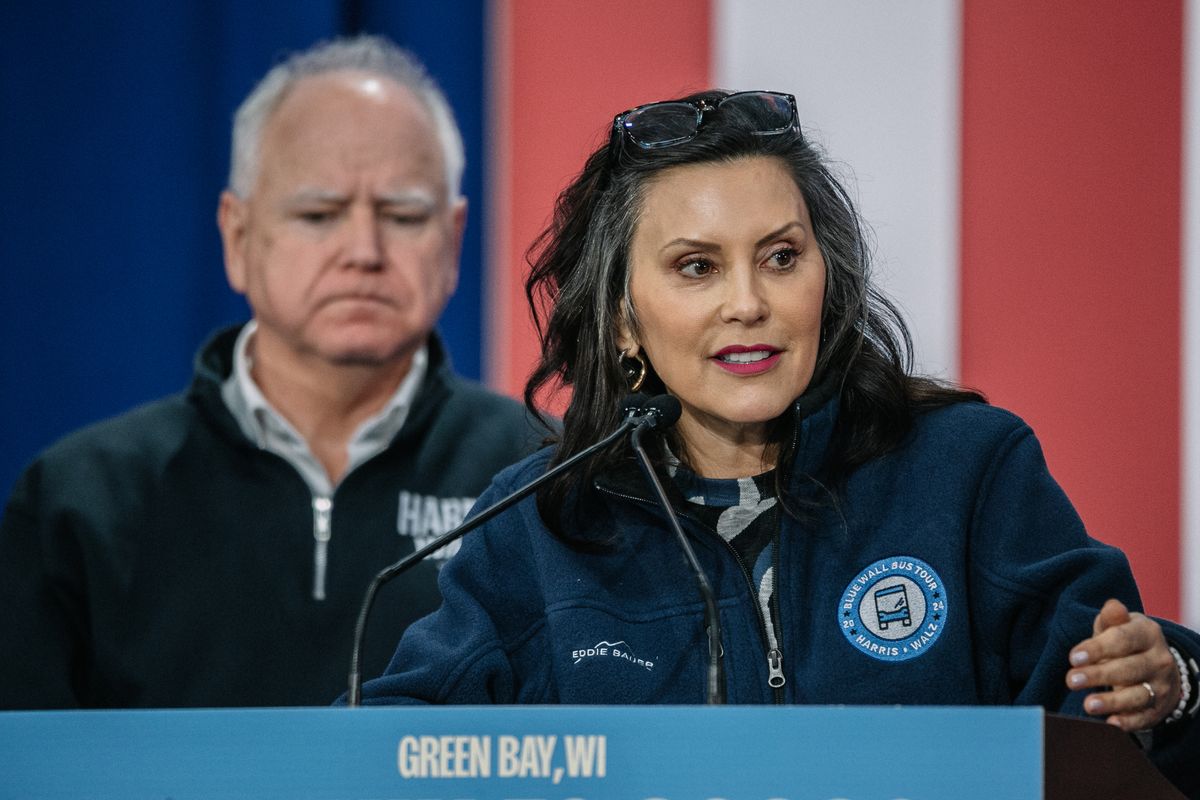On Wednesday, Automakers did not get lucky as President Donald Trump declared a 90-day suspension of most retaliatory tariffs aimed at trading partners. For the moment, the 25 percent tax on imported vehicles and light trucks still stands, forcing every car manufacturer to make tough decisions regarding their manufacturing strategies and price points. United Auto Workers President Shawn Fain states that these automobile manufacturers have the financial capability to cover the additional expense.
In 2023, Fain stated, “We declared that substantial profits equate to significant agreements.” He added that company leaders argued raising salaries and eliminating different levels would compel them to increase costs. Executives warned the sector wouldn’t endure such changes. However, it turns out these businesses were not being truthful. Back then, they had the means to take correct actions, just as they have the capability to make amends today.

This rhetoric is commonly heard from Fain and UAW members, yet the head of the auto workers union experiences mixed emotions regarding these tariffs. Although Fain argues that automakers have the financial capacity to cover the extra expense—an expense that the Center for Automotive Research he suggested that the losses for the Big Three might reach up to $41.9 billion each year—furthermore, he argued that free trade had been devastating for autoworkers. He even described free trade as "the most damaging governmental policy...in nearly all of our working careers."
Definitely, the surge of foreign-imported automobiles entering the U.S. market has posed significant challenges for traditional automakers based in Detroit. However, Fain’s perspective on free trade appears somewhat narrow-minded. Starting from May 3rd, a 25 percent duty will be imposed on imported automotive components, potentially disrupting international supply networks. Furthermore, many domestically produced cars contain substantial amounts of these imported parts; according to CAR data, around 6.8 million such vehicles may be impacted. This situation might catch consumers off guard when they see car prices increasing at dealerships.
“ Businesses are resilient and eager to embrace risks,” stated K. Venkatesh Prasad, the senior vice president of research at CAR and their chief innovation officer. The Detroit News But they typically dislike ambiguity. They’re wondering how to distribute this? Let's split it up, and let's handle the workload here.

The Anderson Economic Group suggests that the price of a new car might rise by as much as $2,500 to $10,000. For luxury vehicles from Japan or Germany, these costs could double, adding another $20,000 onto their already steep prices. Such increases would affect various sectors broadly; however, even employees at auto plants aren’t immune according to the East Lansing, Michigan-based consultancy firm. They predict that maintaining present tariffs could lead to approximately a $5 billion decrease in operational earnings. Consequently, this would significantly influence annual profit-sharing bonuses that UAW members typically receive. In the previous year, General Motors plant workers saw profit-sharing payments reaching up to $14,500 per person, whereas Ford staff earned around $10,208 each.
Michigan will see a reduction in UAW positions," stated Governor Gretchen Whitmer from Michigan. "I realize the leader wishes to engage in discussions. He’s an upright individual who has implemented positive changes. However, my primary worry lies with the long-term impact of losing these union roles and the immediate hardship this will cause for many workers.

In the meantime, automobile manufacturers' groups in Detroit are urgently requesting President Trump to reconsider the proposed 25 percent tariffs focused on autos. The Detroit Regional Chamber and MichiganAuto, organizations that advocate for the interests of businesses within the biggest automotive manufacturing hub in the country, have officially asked President Trump to rescind these tariffs.
"The state's key sector along with its supporting supply chains and workforce will keep facing the uncertainties and disturbances caused by these changing trade policies," the organizations stated collectively. Reuters .
Despite this, Fain persisted with his argument, stating that carmakers possessed greater "pricing leeway" than they admitted. Our examination into invoice costs supports the idea that many suggested retail prices significantly exceed what dealers pay per vehicle. However, the uncertainty lies in whether these automotive companies would be ready to absorb most of their profit margins. For now, it’s a matter of patience, yet the future doesn’t appear favorable for either U.S.-based or international auto producers, nor for their buyers.
Interested in buying a car? Discover your perfect match on the MSN Autos Marketplace.